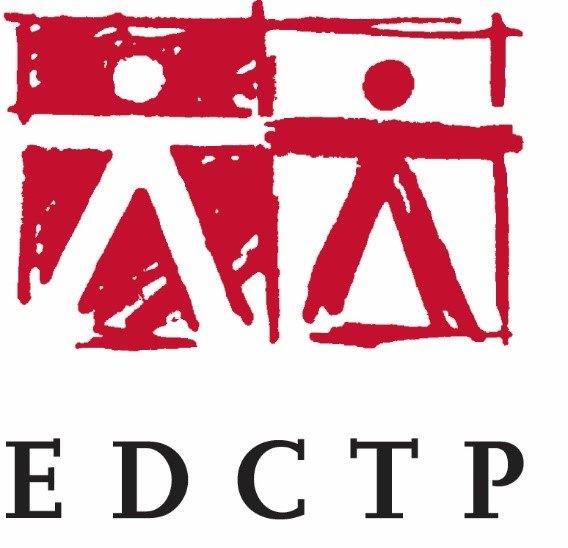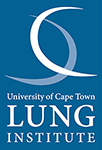Research
Funding
The Centre for Lung Infection and Immunity has or currently receives funding from several organisations and charities including the European Unìon (EUFP7, Horizon 20/20 and the EDCTP), the Wellcome Trust, Newton Fund (UK), South African MRC, South African NRF (Professor Dheda formerly held a South African Research Chair), the Polio Research Foundation, Canada Grant Challenges, NIH, Bill and Melinda Gates Foundation, Oppenheimer Foundation, the Discovery Foundation, GSK (through the SA Thoracic Society), Astra Zeneca (through the SA Thoracic Society), and other organisations.
Laboratory and clinical facilities
The Centre for Lung Infection and Immunity has fully equipped and staffed research laboratories including a bio-safety level 3 laboratory, molecular biological and genomics platform, tissue culture facilities, and immunoassay facilities including a BD LSRII 9 colour flow cytometer and lateral flow assay development suite. Clinical samples and information is collected and collated from several recruitment sites in Cape Town, several sites throughout SA, and from sites elsewhere in Africa. The UCT Lung Institute has facilities for clinical phenotyping including digital x-ray facilities and an inpatient ward. There is access to state of the art accredited chemical pathology and microbiological laboratories. Proteomic studies are conducted in collaboration with the Centre for Proteomic and Genomic Research (Prof Jonathan Blackburn) at the IDM, transcriptomic studies including RNAseq with Prof Tawanda Gumbo at Baylor, and genomic studies including next generation WGS with Prof. Taane Clark at the LSHTM. A cough aerosol sampling facility has been established at Brooklyn Chest Hospital where there is also an infection controlled recruitment centre for MDR-TB patients.
Research
The Centre for Lung Infection and Immunity focuses on clinical, epidemiological, immunological and molecular biological aspects of the common and serious infectious and inflammatory lung conditions, using biological samples obtained directly from the site of disease, the lung. The lung-health-research programme focuses on the pulmonary immunology, pathology, and physiology of four diseases (tuberculosis, HIV, pneumonia and COPD) all of which predominantly or significantly involve the lung, are poverty-related diseases, and are public health priorities in Africa. See publications page for a comprehensive list of publications.
Current projects:
- Studies evaluation the efficacy of new regimens for MDR-TB (NExT RCT): This study is undertaking the first randomised control trial evaluating a 6-month oral regimen for MDR-TB. Details can be found at here. The study is funded by the South African MRC (PI = K. Dheda).
- Understanding host immunity to tuberculosis through human lung challenge models (TB HART): This study seeks to understand correlates of risk in groups with different susceptibility to tuberculosis by challenging the lung with live BCG and PPD antigen using serial bronchoscopy. The work is funded by the South African MRC and the Bill and Melinda Gates Foundation (PI = K Dheda).
- Development and evaluation of new diagnostic devices for tuberculosis: These studies seek to develop user-friendly and point-of-care tests for tuberculosis using several biomarkers, including urine-based TB-specific biomarkers patented with UCT. These studies are funded by several agencies including the South African NRF and the South African MRC (SHIP programme), amongst others.
- HIV self-testing studies: These studies seek to better understand the barriers to HIV self-testing in South Africa and are being followed-up with a clinical trial to evaluate the feasibility and impact of HIV self-testing in the country. The work is funded Gates Grand Challenges Canada (PI = N. Pai).
- Studies evaluating the role of new diagnostic interventions in active case finding for tuberculosis (XACT II): This randomised control trial seeks to evaluate the role of newer diagnostic tools such as Xpert Omni for active case finding in TB endemic countries. The work is currently funded by the EDCTP and NIH (PI = K Dheda).
- Studies to better understand TB transmission: These studies seek to develop bioclinical scoring systems that portend infectiousness of TB patients using cutting edge cough aerosol (CASS). This work is currently funded by the NIH (PI = K. Dheda). Additional work seeks to develop devices to limit or measure transmission. Other work seeks to understand factors that may impact transmission including long-term persistence, dormancy, and lazy persistor phenotypes.
- Studies of pulmonary host immunity: These studies are evaluating the role of regulatory immune pathways including Th2 cytokines and Treg in pulmonary tuberculosis, using cells from the lung and peripheral blood.
- Drug-resistant TB: Comparative prospective outcome, molecular epidemiology including next generation whole genome sequencing, PK and cost analysis studies of drug-sensitive and resistant tuberculosis as part of the Western Cape Drug-resistant TB Research Group. “Next generation whole genome sequencing, including the utility of targeted sequencing, is the subject of an EDCTP Senior Fellowship award (TMA 2015 SF – 1043).”
- Diagnostic Biomarkers in Pleural Effusion: examines the utility of several novel biomarkers, including proteomics, for the diagnosis of malignant and TB-related pleural effusions.
- Cutaneous adverse drug reaction to anti-tuberculous drugs: RCT evaluating step-wise versus simultaneous re-challenge of anti-TB drugs and predictive variables for the development of drug reactions (Dr. Ranks Lehloenya).


Completed projects
- TBsusgent project: TBsusgent is the acronym for a 36-month capacity development project that ran from 2008 to 2011 funded by the European Union (EU), as part of the Seventh Framework Programme Health Theme. The project is titled "Sustaining research momentum over the coming decades: mentoring the next generation of researchers for tuberculosis". Go to the TBsusgent website
- LIN-TB (Lung Innate Immunity in TB infection): This study investigated the immunopathogenesis underlying the failure of substantial numbers of close contacts to develop laboratory evidence of LTBI.
- TB-NEAT Study (Tuberculosis- Novel and Emerging Technologies for diagnosis): The performance outcomes and feasibility of several new TB diagnostics (T cell assays, LAM, Gene Xpert MTB/RIF, breath analysis and LED microscopy etc.) were evaluated from 2010 to 2014. The results of randomised control trials resulted in 2 publications in the The Lancet. Go to the TB-NEAT website
- Health care workers: Evaluation of newer screening tools for LTBI and their predictive value for the development of active TB (published in Annals of Internal Med and Eur Resp J).
- Smoking and tuberculosis: Immunological studies evaluating the role of cigarette smoke in subverting pulmonary mycobactericidal host immune responses.
- SAIGRA study (SA IFN-gamma release assay study) examined TST-mediated boosting and the utility of T cell immune assays in the diagnosis of pulmonary and extra-pulmonary TB using cells from peripheral blood, the lung, the pleural space and cerebrospinal fluid.
- Performance outcomes of sputum induction and rapid immunodiagnosis: a randomised controlled trial was conducted evaluating the outcomes of sputum induction in HIV + and HIV negative suspects in primary care. This work was published in Clinical Infectious Diseases and the European Respiratory Journal.
- Novel technologies for the diagnosis of TBM: evaluated the utility and performance outcomes of newer technologies for the diagnosis of TBM. This work was published in the AJRCCM and PLoS Medicine.
- Outcome studies of infectious and non-infectious pneumonitis in HIV-infected persons: evaluated the immunological profile and treatment-related outcomes of community acquired pneumonia and lymphocytic interstitial pneumonitis.
Collaborator |
Institution |
Country |
|---|---|---|
| Madhukar Pai and Dick Menzies | McGill University | Canada |
| Tawanda Gumbo | Baylor Research Institute, Dallas | USA |
| Bill Rom, Micheal Weiden, and Doris Tse | NYU | USA |
| Stephan Schwander | Rutgers, New Jersey | USA |
| Kevin Fennelly (Now at an intramural NIH Unit) | University of Florida | USA |
| Maddy Noursadeghi | UCL | London |
| Taane Clark and Susana Campino | London School of Health and Tropical Medicine | London |
| Stephen Gordon; Stephen Ward | Liverpool School of Tropical Medicine | Liverpool |
| Christoph Lange | Tuberculosis Centre , Borstel | UK |
| Peter Anderson and Morten Ruhwald | Statens Serum Institutet | Denmark |
| Bram van Ginneken | University of Radboud | Netherlands |
| Markus Maurer | Karolinska Institute | Sweden |
| Leonardo Sechi | University of Sassari | Italy |
| Michael Hoelscher | University Munich | Germany |
| Hossam Haick | Technion - Israel Institute of Technology | Israel |
| Surendra Sharma | AIIMS | India |
| Mohan Alladi | SVIMS | India |
| Indu Verma | Postgraduate Institute of Medical Education and Research (PGIMER) | India |
| Duncan Chanda | University of Zambia | Zambia |
| Rosemary Musonda | Botswana Harvard AIDS Institute Partnership for HIV Research and Education | Botswana |
| Peter Mason | Biomedical Research & Training Institute | Harare |
| Lynn Zijenah | University of Zimbabwe College of Health Sciences | Zimbabwe |
| Exnevia Gomo | Research Support centre, College of Medicine, University of Malawi | Malawi |
| Zulmira Silva | Direcção De Saűde De Cidade De Maputo | Mozambique |
| Shooz Kathi (now at the NRF) | CSIR | South Africa |
| Emmanuel Iwuoha | University of the Western Cape | South Africa |
| Jeffrey Mphahlele and Akter Goolam-Mahomed | Sefako Makgatho University | South Africa |
| Rob Warren, Gerhard Walzl | University of Stellenbosch | South Africa |
| Thumbi Ndungu, Thuli Mthiyane, and Vinod Patel | UKZN, Durban | South Africa |
| Alex Sigal and Alex Pym | KRITH, Durban | South Africa |
| Catharina Boehme and Claudia Denkinger | Gates Foundation | South Africa |
| Patrick Oluboyo and John Black | Walter Sisulu University | South Africa |
| Garrick Barber | Jose Pearson M/XDR TB Centre of Excellence, Empilweni Hospital | South Africa |
| Neil Martinson and Ebrahim Variava | Tshepong Hospital and University of Witwatersrand | South Africa |
